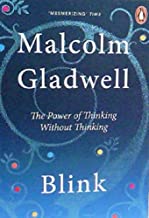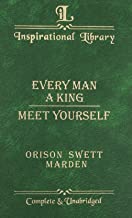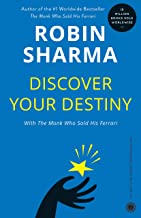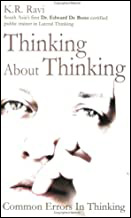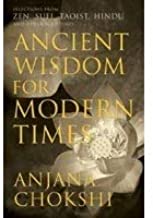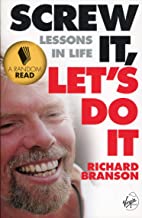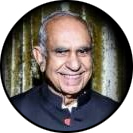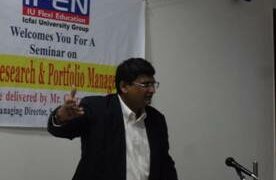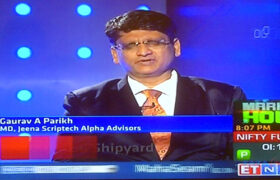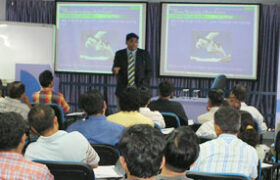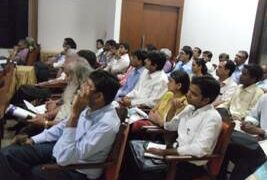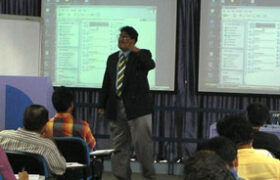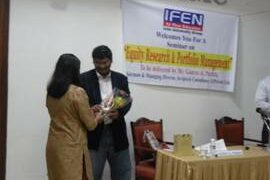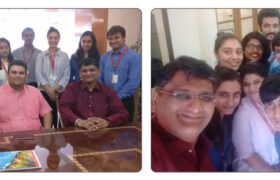…about choices that appear to be made in an instant-in the blink of an eye-that actually aren’t as simple as they seem…Great Decision Makers are those who have perfected the art of “thin slicing”-knowing the very few things that matter
Every Man A King
Our Worst Enemy is Fear….Pessimism is Unprofitable….The Power of Cheerful Thinking is Immense
Faith
Faith is not a Commodity we either have or don’t have-it is an inner quality that unfolds as we learn to trust our own deepest experience
J K Rowling’s address to Harvard Graduates in 2008
Have highlighted in Bold, Popular Names and Phrases that are really powerful and inspiring and with which you can connect instantly…. and there are many !
The Fringe Benefits of Failure, and the Importance of Imagination
 J.K. Rowling, author of the best-selling Harry Potter book series, delivers her Commencement Address, “The Fringe Benefits of Failure, and the Importance of Imagination”, at the Annual Meeting of the Harvard Alumni Association.
J.K. Rowling, author of the best-selling Harry Potter book series, delivers her Commencement Address, “The Fringe Benefits of Failure, and the Importance of Imagination”, at the Annual Meeting of the Harvard Alumni Association.
President Faust, members of the Harvard Corporation and the Board of Overseers, members of the faculty, proud parents, and, above all, graduates.
The first thing I would like to say is ‘thank you.’ Not only has Harvard given me an extraordinary honour, but the weeks of fear and nausea I’ve experienced at the thought of giving this commencement address have made me lose weight. A win-win situation! Now all I have to do is take deep breaths, squint at the red banners and fool myself into believing I am at the world’s best-educated Harry Potter convention.
Delivering a commencement address is a great responsibility; or so I thought until I cast my mind back to my own graduation. The commencement speaker that day was the distinguished British philosopher Baroness Mary Warnock. Reflecting on her speech has helped me enormously in writing this one, because it turns out that I can’t remember a single word she said. This liberating discovery enables me to proceed without any fear that I might inadvertently influence you to abandon promising careers in business, law or politics for the giddy delights of becoming a gay wizard.
You see? If all you remember in years to come is the ‘gay wizard’ joke, I’ve still come out ahead of Baroness Mary Warnock. Achievable goals: the first step towards personal improvement.
Actually, I have wracked my mind and heart for what I ought to say to you today. I have asked myself what I wish I had known at my own graduation, and what important lessons I have learned in the 21 years that has expired between that day and this.
I have come up with two answers. On this wonderful day when we are gathered together to celebrate your academic success, I have decided to talk to you about the benefits of failure. And as you stand on the threshold of what is sometimes called ‘real life’, I want to extol the crucial importance of imagination.
These might seem quixotic or paradoxical choices, but please bear with me.
Looking back at the 21-year-old that I was at graduation is a slightly uncomfortable experience for the 42-year-old that she has become. Half my lifetime ago, I was striking an uneasy balance between the ambition I had for myself, and what those closest to me expected of me.
I was convinced that the only thing I wanted to do, ever, was to write novels. However, my parents, both of whom came from impoverished backgrounds and neither of whom had been to college, took the view that my overactive imagination was an amusing personal quirk that could never pay a mortgage, or secure a pension.
They had hoped that I would take a vocational degree; I wanted to study English Literature. A compromise was reached that in retrospect satisfied nobody, and I went up to study Modern Languages. Hardly had my parents’ car rounded the corner at the end of the road than I ditched German and scuttled off down the Classics corridor.
I cannot remember telling my parents that I was studying Classics; they might well have found out for the first time on graduation day. Of all subjects on this planet, I think they would have been hard put to name one less useful than Greek mythology when it came to securing the keys to an executive bathroom.
I would like to make it clear, in parenthesis, that I do not blame my parents for their point of view. There is an expiry date on blaming your parents for steering you in the wrong direction; the moment you are old enough to take the wheel, responsibility lies with you. What is more, I cannot criticise my parents for hoping that I would never experience poverty. They had been poor themselves, and I have since been poor, and I quite agree with them that it is not an ennobling experience. Poverty entails fear, and stress, and sometimes depression; it means a thousand petty humiliations and hardships. Climbing out of poverty by your own efforts, that is indeed something on which to pride yourself, but poverty itself is romanticised only by fools.
What I feared most for myself at your age was not poverty, but failure.
At your age, in spite of a distinct lack of motivation at university, where I had spent far too long in the coffee bar writing stories, and far too little time at lectures, I had a knack for passing examinations, and that, for years, had been the measure of success in my life and that of my peers.
I am not dull enough to suppose that because you are young, gifted and well-educated, you have never known hardship or heartbreak. Talent and intelligence never yet inoculated anyone against the caprice of the Fates, and I do not for a moment suppose that everyone here has enjoyed an existence of unruffled privilege and contentment.
However, the fact that you are graduating from Harvard suggests that you are not very well-acquainted with failure. You might be driven by a fear of failure quite as much as a desire for success. Indeed, your conception of failure might not be too far from the average person’s idea of success, so high have you already flown academically.
Ultimately, we all have to decide for ourselves what constitutes failure, but the world is quite eager to give you a set of criteria if you let it. So I think it fair to say that by any conventional measure, a mere seven years after my graduation day, I had failed on an epic scale. An exceptionally short-lived marriage had imploded, and I was jobless, a lone parent, and as poor as it is possible to be in modern Britain, without being homeless. The fears my parents had had for me, and that I had had for myself, had both come to pass, and by every usual standard, I was the biggest failure I knew.
Now, I am not going to stand here and tell you that failure is fun. That period of my life was a dark one, and I had no idea that there was going to be what the press has since represented as a kind of fairy tale resolution. I had no idea how far the tunnel extended, and for a long time, any light at the end of it was a hope rather than a reality.
So why do I talk about the benefits of failure? Simply because failure meant a stripping away of the inessential. I stopped pretending to myself that I was anything other than what I was, and began to direct all my energy into finishing the only work that mattered to me. Had I really succeeded at anything else, I might never have found the determination to succeed in the one arena I believed I truly belonged. I was set free, because my greatest fear had already been realised, and I was still alive, and I still had a daughter whom I adored, and I had an old typewriter and a big idea. And so rock bottom became the solid foundation on which I rebuilt my life.
You might never fail on the scale I did, but some failure in life is inevitable. It is impossible to live without failing at something, unless you live so cautiously that you might as well not have lived at all … in which case, you fail by default.
Failure gave me an inner security that I had never attained by passing examinations. Failure taught me things about myself that I could have learned no other way. I discovered that I had a strong will, and more discipline than I had suspected; I also found out that I had friends whose value was truly above rubies.
The knowledge that you have emerged wiser and stronger from setbacks means that you are, ever after, secure in your ability to survive. You will never truly know yourself, or the strength of your relationships, until both have been tested by adversity. Such knowledge is a true gift, for all that it is painfully won, and it has been worth more to me than any qualification I ever earned.
Given a time machine or a Time Turner, I would tell my 21-year-old self that personal happiness lies in knowing that life is not a check-list of acquisition or achievement. Your qualifications, your CV, are not your life, though you will meet many people of my age and older who confuse the two. Life is difficult, and complicated, and beyond anyone’s total control and the humility to know that will enable you to survive its vicissitudes.
You might think that I chose my second theme, the importance of imagination, because of the part it played in rebuilding my life, but that is not wholly so. Though I will defend the value of bedtime stories to my last gasp, I have learned to value imagination in a much broader sense.
Imagination is not only the uniquely human capacity to envision that which is not, and therefore the fount of all invention and innovation. In its arguably most transformative and revelatory capacity, it is the power that enables us to empathise with humans whose experiences we have never shared.
One of the greatest formative experiences of my life preceded Harry Potter, though it informed much of what I subsequently wrote in those books. This revelation came in the form of one of my earliest day jobs. Though I was sloping off to write stories during my lunch hours, I paid the rent in my early 20s by working in the research department at Amnesty International’s headquarters in London.
There in my little office I read hastily scribbled letters smuggled out of totalitarian regimes by men and women who were risking imprisonment to inform the outside world of what was happening to them. I saw photographs of those who had disappeared without trace, sent to Amnesty by their desperate families and friends. I read the testimony of torture victims and saw pictures of their injuries. I opened handwritten, eye-witness accounts of summary trials and executions, of kidnappings and rapes.
Many of my co-workers were ex-political prisoners, people who had been displaced from their homes, or fled into exile, because they had the temerity to think independently of their government. Visitors to our office included those who had come to give information, or to try and find out what had happened to those they had been forced to leave behind.
I shall never forget the African torture victim, a young man no older than I was at the time, who had become mentally ill after all he had endured in his homeland. He trembled uncontrollably as he spoke into a video camera about the brutality inflicted upon him. He was a foot taller than I was, and seemed as fragile as a child. I was given the job of escorting him to the Underground Station afterwards, and this man whose life had been shattered by cruelty took my hand with exquisite courtesy, and wished me future happiness.
And as long as I live I shall remember walking along an empty corridor and suddenly hearing, from behind a closed door, a scream of pain and horror such as I have never heard since. The door opened, and the researcher poked out her head and told me to run and make a hot drink for the young man sitting with her. She had just given him the news that in retaliation for his own outspokenness against his country’s regime, his mother had been seized and executed.
Every day of my working week in my early 20s I was reminded how incredibly fortunate I was, to live in a country with a democratically elected government, where legal representation and a public trial were the rights of everyone.
Every day, I saw more evidence about the evils humankind will inflict on their fellow humans, to gain or maintain power. I began to have nightmares, literal nightmares, about some of the things I saw, heard and read.
And yet I also learned more about human goodness at Amnesty International than I had ever known before.
Amnesty mobilises thousands of people who have never been tortured or imprisoned for their beliefs to act on behalf of those who have. The power of human empathy, leading to collective action, saves lives, and frees prisoners. Ordinary people, whose personal well-being and security are assured, join together in huge numbers to save people they do not know, and will never meet. My small participation in that process was one of the most humbling and inspiring experiences of my life.
Unlike any other creature on this planet, humans can learn and understand, without having experienced. They can think themselves into other people’s minds; imagine themselves into other people’s places.
Of course, this is a power, like my brand of fictional magic that is morally neutral. One might use such an ability to manipulate, or control, just as much as to understand or sympathise.
And many prefer not to exercise their imaginations at all. They choose to remain comfortably within the bounds of their own experience, never troubling to wonder how it would feel to have been born other than they are. They can refuse to hear screams or to peer inside cages; they can close their minds and hearts to any suffering that does not touch them personally; they can refuse to know.
I might be tempted to envy people who can live that way, except that I do not think they have any fewer nightmares than I do. Choosing to live in narrow spaces can lead to a form of mental agoraphobia, and that brings its own terrors. I think the willfully unimaginative see more monsters. They are often more afraid.
What is more, those who choose not to empathise may enable real monsters. For without ever committing an act of outright evil ourselves, we collude with it, through our own apathy.
One of the many things I learned at the end of that Classics corridor down which I ventured at the age of 18, in search of something I could not then define, was this, written by the Greek author Plutarch: What we achieve inwardly will change outer reality.
That is an astonishing statement and yet proven a thousand times every day of our lives. It expresses, in part, our inescapable connection with the outside world, the fact that we touch other people’s lives simply by existing.
But how much more are you, Harvard graduates of 2008, likely to touch other people’s lives? Your intelligence, your capacity for hard work, the education you have earned and received, give you unique status, and unique responsibilities. Even your nationality sets you apart. The great majority of you belong to the world’s only remaining superpower. The way you vote, the way you live, the way you protest, the pressure you bring to bear on your government, has an impact way beyond your borders. That is your privilege, and your burden.
If you choose to use your status and influence to raise your voice on behalf of those who have no voice; if you choose to identify not only with the powerful, but with the powerless; if you retain the ability to imagine yourself into the lives of those who do not have your advantages, then it will not only be your proud families who celebrate your existence, but thousands and millions of people whose reality you have helped transform for the better. We do not need magic to change the world; we carry all the power we need inside ourselves already: we have the power to imagine better.
I am nearly finished. I have one last hope for you, which is something that I already had at 21. The friends with whom I sat on graduation day have been my friends for life. They are my children’s godparents, the people to whom I’ve been able to turn in times of trouble, friends who have been kind enough not to sue me when I’ve used their names for Death Eaters. At our graduation we were bound by enormous affection, by our shared experience of a time that could never come again, and, of course, by the knowledge that we held certain photographic evidence that would be exceptionally valuable if any of us ran for Prime Minister.
So today, I can wish you nothing better than similar friendships. And tomorrow, I hope that even if you remember not a single word of mine, you remember those of Seneca, another of those old Romans I met when I fled down the Classics corridor, in retreat from career ladders, in search of ancient wisdom:
As is a tale, so is life: not how long it is, but how good it is, is what matters.
I wish you all very good lives.
Thank you very much
Bryan Dyson, ex-CEO of Coke
A short but to the point speech given by Bryan Dyson – Former CEO of Coca Cola
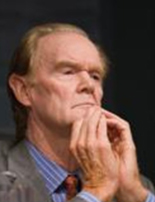 Imagine life as a game in which you are juggling some five balls in the air. You name them – Work, Family, Health, Friends and Spirit and you’re keeping all of these in the air.
Imagine life as a game in which you are juggling some five balls in the air. You name them – Work, Family, Health, Friends and Spirit and you’re keeping all of these in the air.
You will soon understand that work is a rubber ball. If you drop it, it will bounce back. But the other four balls – Family, Health, Friends and Spirit – are made of glass. If you drop one of these; they will be irrevocably scuffed, marked, nicked, damaged or even shattered. They will never be the same. You must understand that and strive for it.
Work efficiently during office hours and leave on time. Give the required time to your family, friends and have proper rest.
Value has a value only if its value is valued.
Subroto Bagchi to the Class of 2006 IIM, Bengaluru
“Go Kiss the World”… Subroto Bagchi’s Inspiring Address on what is Success… to the Class of 2006 IIM, Bengaluru
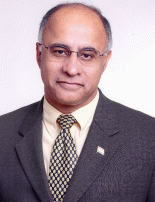 I was the last child of a small-time government servant, in a family of five brothers. My earliest memory of my father is as that of a District Employment Officer in Koraput, Orissa. It was, and remains as back of beyond as you can imagine. There was no electricity; no primary school nearby and water did not flow out of a tap. As a result, I did not go to school until the age of eight; I was home-schooled. My father used to get transferred every year. The family belongings fit into the back of a jeep – so the family moved from place to place and without any trouble, my Mother would set up an establishment and get us going. Raised by a widow who had come as a refugee from the then East Bengal, she was a matriculate when she married my Father.
I was the last child of a small-time government servant, in a family of five brothers. My earliest memory of my father is as that of a District Employment Officer in Koraput, Orissa. It was, and remains as back of beyond as you can imagine. There was no electricity; no primary school nearby and water did not flow out of a tap. As a result, I did not go to school until the age of eight; I was home-schooled. My father used to get transferred every year. The family belongings fit into the back of a jeep – so the family moved from place to place and without any trouble, my Mother would set up an establishment and get us going. Raised by a widow who had come as a refugee from the then East Bengal, she was a matriculate when she married my Father.
My parents set the foundation of my life and the value system, which makes me what I am today and largely, defines what success means to me today.
My parents set the foundation of my life and the value system, which makes me what I am today and largely, defines what success means to me today.
As District Employment Officer, my father was given a jeep by the government. There was no garage in the Office, so the jeep was parked in our house. My father refused to use it to commute to the office. He told us that the jeep is an expensive resource given by the government-he reiterated to us that it was not “his jeep” but the government’s jeep. Insisting that he would use it only to tour the interiors, he would walk to his office on normal days. He also made sure that we never sat in the government jeep -we could sit in it only when it was stationary.
That was our early childhood lesson in governance … a lesson that corporate managers learn the hard way, some never do.
To me, the lesson was significant … you treat small, people with more respect than how you treat big people. It is more important to respect your subordinates than your superiors
Our day used to start with the family huddling around my Mother’s chulha -an earthen fire place she would build at each place of posting where she would cook for the family. There was neither gas, nor electrical stoves. The morning routine started with tea. As the brew was served, Father would ask us to read aloud the editorial page of The Statesman’s ‘muffosil’ edition -delivered one day late. We did not understand much of what we were reading. But the ritual was meant for us to know that the world was larger than Koraput district and the English I speak today, despite having studied in an Oriya medium school, has to do with that routine. After reading the newspaper aloud, we were told to fold it neatly. Father taught us a simple lesson.
He used to say, “You should leave your newspaper and toilet the way you expect to find it.” That lesson was about showing consideration to others: begins and ends with that simple precept.
Being small children, we were always enamored with advertisements in the newspaper for transistor radios -we did not have one. We saw other people having radios in their homes and each time there was an advertisement of Philips, Murphy or Bush radios, we would ask Father when we could get one. Each time, my Father would reply that we did not need one because he already had five radios – alluding to his five sons.
We also did not have a house of our own and would occasionally ask Father as to when, like others, we would live in our own house. He would give a similar reply,” We do not need a house of our own. I already own five houses”. His replies did not gladden our hearts in that instant.
Nonetheless, we learnt that it is important not to measure personal success and sense of well being through material possessions.
Government houses seldom came with fences. Mother and I collected twigs and built a small fence. After lunch, my Mother would never sleep. She would take her kitchen , utensils and with those she and I would dig the rocky, white ant infested surrounding. We planted flowering bushes. The white ants destroyed them. My mother brought ash from her chulha and mixed it in the earth and we planted the seedlings all over again. This time, they bloomed. At that time, my father’s transfer order came. A few neighbors told my mother why she was taking so much pain to beautify a government house, why she was planting seeds that would only benefit the next occupant. My mother replied that it did not matter to her that she would not see the flowers in full bloom. She said, “I have to create a bloom in a desert and whenever I am given a new place, I must leave it more beautiful than what I had inherited.”
That was my first lesson in success. It is not about what you create for yourself, it is what you leave behind that defines success.
My mother began developing a cataract in her eyes when I was very small. At that time, the eldest among my brothers got a teaching job at the University in Bhubaneswar and had to prepare for the civil services examination. So, it was decided that my Mother would move to cook for him and, as her appendage, I had to move too. For the first time in my life I saw electricity in homes and water coming out of a tap. It was around 1965 and the country was going to war with Pakistan. My mother was having problems reading and in any case, being Bengali, she did not know the Oriya script. So, in addition to my daily chores, my job was to read her the local newspaper -end to end. That created in me a sense of connectedness with a larger world. I began taking interest in many different things. While reading out news about the war, I felt that I was fighting the war myself. She and I discussed the daily news and built a bond with the larger universe. In it, we became part of a larger reality. Till date, I measure my success in terms of that sense of larger connectedness. Meanwhile, the war raged and India was fighting on both fronts. Lal Bahadur Shastri, the then Prime Minster, coined the term “Jai Jawan, Jai Kishan” and galvanized the nation in to patriotic fervor. Other than reading out the newspaper to my mother, I had no clue about how I could be part of the action. So, after reading her the newspaper, every day I would land up near the University’s water tank, which served the community. I would spend hours under it, imagining that there could be spies who would come to poison the water and I had to watch for them. I would daydream about catching one and how the next day, I would be featured in the newspaper. Unfortunately for me, the spies at war ignored the sleepy town of Bhubaneswar and I never got a chance to catch one in action. Yet, that act unlocked my imagination.
Imagination is everything. If we can imagine a future, we can create it, if we can create that future, others will live in it. That is the essence of success.
Over the next few years, my mother’s eyesight dimmed but in me she created a larger vision, a vision with which I continue to see the world and, I sense, through my eyes, she was seeing too. As the next few years unfolded, her vision deteriorated and she was operated for cataract. I remember when she returned after her operation and she saw my face clearly for the first time, she was astonished. She said, “Oh my God, I did not know you were so fair”. I remain mighty pleased with that adulation even till date. Within weeks of getting her sight back, she developed a corneal ulcer and, overnight, became blind in both eyes. That was 1969. She died in 2002. In all those 32 years of living with blindness, she never complained about her fate even once. Curious to know what she saw with blind eyes, I asked her once if she sees darkness. She replied, “No, I do not see darkness. I only see light even with my eyes closed”. Until she was eighty years of age, she did her morning yoga every day, swept her own room and washed her own clothes.
To me, success is about the sense of independence; it is about not seeing the world but seeing the light.
Over the many intervening years, I grew up, studied, joined the industry and began to carve my life’s own journey. I began my life as a clerk in a government office, went on to become a Management Trainee with the DCM group and eventually found my life’s calling with the IT industry when fourth generation computers came to India in 1981. Life took me places … I worked with outstanding people, challenging assignments and traveled all over the world.
In 1992, while I was posted in the US, I learnt that my father, living a retired life with my eldest brother, had suffered a third degree burn injury and was admitted in the Safderjung Hospital in Delhi. I flew back to attend to him -he remained for a few days in critical stage, bandaged from neck to toe. The Safderjung Hospital is a cockroach infested, dirty, inhuman place. The overworked, under-resourced sisters in the burn ward are both victims and perpetrators of dehumanized life at its worst. One morning, while attending to my Father, I realized that the blood bottle was empty and fearing that air would go into his vein, I asked the attending nurse to change it. She bluntly told me to do it myself. In that horrible theater of death, I was in pain and frustration and anger. Finally when she relented and came, my Father opened his eyes and murmured to her, “Why have you not gone home yet?” Here was a man on his deathbed but more concerned about the overworked nurse than his own state. I was stunned at his stoic self.
There I learnt that there is no limit to how concerned you can be for another human being and what the limit of inclusion is you can create.
Above all, he taught me that success is your ability to rise above your discomfort, whatever may be your current state. You can, if you want, raise your consciousness above your immediate surroundings. Success is not about building material comforts -the transistor that he never could buy or the house that he never owned. His success was about the legacy he left, the mimetic continuity of his ideals that grew beyond the smallness of a ill-paid, unrecognized government servant’s world.
My father was a fervent believer in the British Raj. He sincerely doubted the capability of the post-independence Indian political parties to govern the country. To him, the lowering of the Union Jack was a sad event. My Mother was the exact opposite. When Subhash Bose quit the Indian National Congress and came to Dacca, my mother, then a schoolgirl, garlanded him. She learnt to spin khadi and joined an underground movement that trained her in using daggers and swords. Consequently, our household saw diversity in the political outlook of the two. On major issues concerning the world, the Old Man and the Old Lady had differing opinions.
In them, we learnt the power of disagreements, of dialogue and the essence of living with diversity in thinking.
Success is not about the ability to create a definitive dogmatic end state; it is about the unfolding of thought processes, of dialogue and continuum.
Two years back, at the age of eighty-two, Mother had a paralytic stroke and was lying in a government hospital in Bhubaneswar. I flew down from the US where I was serving my second stint, to see her. I spent two weeks with her in the hospital as she remained in a paralytic state. She was neither getting better nor moving on. Eventually I had to return to work. While leaving her behind, I kissed her face. In that paralytic state and a garbled voice, she said,
“Why are you kissing me, go kiss the world.” Her river was nearing its journey, at the confluence of life and death, this woman who came to India as a refugee, raised by a widowed Mother, no more educated than high school, married to an anonymous government servant whose last salary was Rupees Three Hundred, robbed of her eyesight by fate and crowned by adversity was telling me to go and kiss the world!
Success to me is about Vision. It is the ability to rise above the immediacy of pain. It is about imagination. It is about sensitivity to small people. It is about building inclusion. It is about connectedness to a larger world existence. It is about personal tenacity. It is about giving back more to life than you take out of it. It is about creating extra-ordinary success with ordinary lives.
Thank you very much; I wish you good luck and God’s speed.
Go! kiss the world !!!
Discover Your Destiny
Readers are introduced to Dar Sanderson, a highly ambitious executive who appears to have it all on the outside but lacks happiness, meaning and inner peace… he embarks on an extraordinary odyssey to find his authentic self and claim the life of his dreams learning the seven potent lessons that are essential
Thinking about Thinking
The author is the first in India to be certified as an Edward Bono Trainer in Lateral Thinking
The key to a beautiful mind is creativity,imagination and empathy. A properly trained mind enables you to hone your skills, but a misguided mind can leave you confused and stranded
Ancient Wisdom for Modern Times
Refreshing Insights into the many Challenges that we face in day to day living
Screw It, Let’s Do it
People will always try to talk you out of ideas and say : “It can’t be done,” but if you have faith in yourself you’ll find you can achieve almost anything

